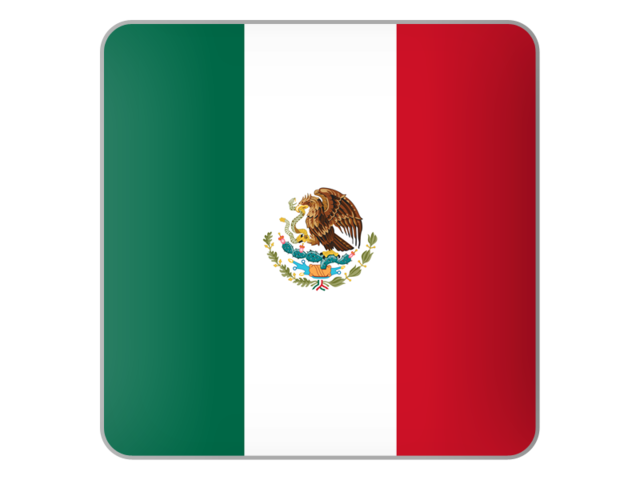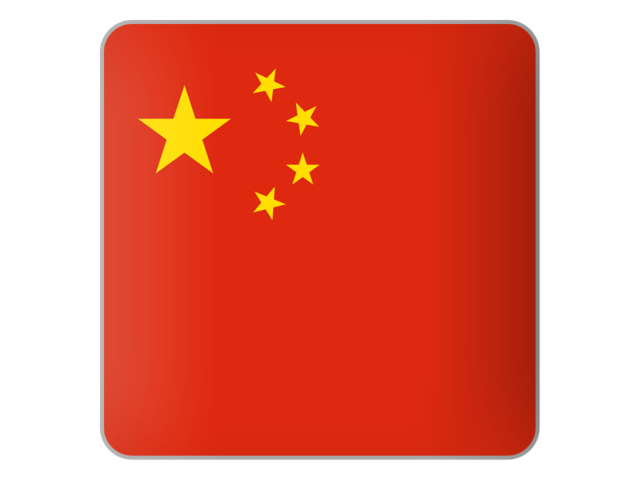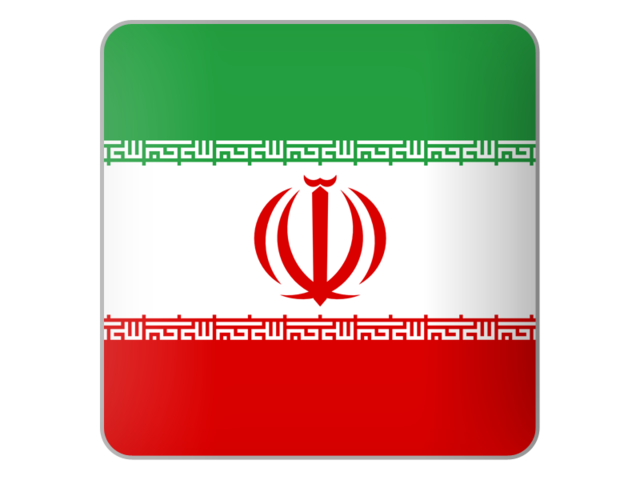This is my annual review of the year just gone and preview of the New Year. It is intended to give you a global overview of what I think are the most important economic events and themes that occurred in 2018 and the ones to look out for in 2019. I hope you find this both informative and useful!
*** CONTENTS ***
(If you want to skip to a particular section, please click on the appropriate heading below)
Section 1: Introduction
Section 2: The Review of 2018
Section 3: Preview of 2019
Section 4: Country-by-country overview for 2019
Section 5: Themes for 2019
Section 6: Conclusions
INTRODUCTION
I thought I’d kick off proceedings for the 2018/2019 edition of Watson’s Yearly with a few quotes. Who said the following during the course of 2018 (answers below)?
“I think it’s the bravery that helps you beat this game called life. They tried to scare me into not wearing this hat – my own friends. This hat, it gives me power in a certain way”
“Why are we having all these people from shith0le countries come here?”
“If you are ready and motivated, in hotels, cafes and construction, everywhere I go people say to me that they are looking for staff. I can find you a job just by crossing the street”
“I made a conscious decision, because of Stevie Wonder, to not be superstitious”
“You people are not concerned about public safety. You are all pussies”
Well – what a year 2018 has been! Trump picking a trade fight with China, Europe slamming the door on Theresa May’s fingers re Brexit, oil volatility, more Bitcoin weakness and both French President Emmanuel Macron and Germany’s Angela Merkel seeing their respective popularity going down the toilet. Japan’s emperor announced his abdication, Prince Harry got married to a Hollywood star and an overweight giant with depression battled through his issues to equal Deontay Wilder in the boxing ring! Predicting what’s going to happen in 2019 will be difficult, but the aim of this report is to give you a decent framework of knowledge that will show you what to expect in what will, no doubt, prove to be another very eventful year!
Happy reading!
Peter Watson
(Quotation answers: 1. Rapper Kanye West on wearing the “Make America Great Again” baseball hat when he went to the White House in October, 2. US President Donald Trump referring to El Salvador and parts of Africa in a meeting with lawmakers in the White House during a discussion on a potential immigration deal, 3. French President Emmanuel Macron giving career advice to an unemployed gardener in September at the Elysee Palace. It’s things like this that led to the increasing popularity of the gilets jaunes, 4. Matt Goss, of 80s sensation band Bros in the not-meant-to-be-hilarious documentary “After the screaming stops”, 5. Brazil’s new President Jair Bolsonaro, addressing congress)
THE REVIEW OF 2018
January 2018 – Big builder and government outsourcer Carillion collapsed, which reignited the ongoing debate about the stranglehold the Big Four accountants have on audit given that KPMG had given the company a clean bill of health 10 months prior to the collapse. MiFID II came into force on Jan 3rd, forcing transparency in the financial industry (which has subsequently resulted in a lot of industry consolidation). Bitcoin’s value halved since December’s $20,000 high. Trump put tariffs on white good imports from Asia to protect US manufacturers such as Whirlpool.
February 2018 – Rupert Murdoch’s 21st Century Fox said it expected to get the go-ahead for its takeover of Sky, despite indications to the contrary from the Competition and Markets Authority. Comcast then came in with a much higher offer of £22bn. Toys R Us and Maplin went into administration.
March 2018 – Trump upped the ante on trade by putting 25% import tariffs on steel and 10% on aluminium and he also blocked the $142bn hostile takeover of Qualcomm by Singpore-based rival Broadcom “on national security grounds”. Unilever threatened to move its domicile to Rotterdam and Facebook suffered as reports that Cambridge Analytica tried to influence US voters using data mined from Facebook. Sir James Dyson announced plans to build an electric car by 2021.
April 2018 – China imposed tariffs on 120 US products in retaliation to Trump‘s earlier tariff overtures. Spotify floated in New York with a $30bn valuation. Sir Martin Sorrell (founder of the world’s largest advertising conglomerate WPP) was ousted from his own company due to allegations of “personal misconduct” and “financial impropriety”. The Lake District Pound was launched in April to encourage people to spend money in local businesses.
May 2018 – The IMF gave Argentina a $30bn credit lifeline after a fortnight of a cratering peso. Turkish lira and Russian rouble wobbles hinted at a potential emerging market currency crisis. Uber signed a deal with Nasa to develop flying city taxis. The government announced plans to cut the maximum stake on Fixed Odds Betting Terminals (FOBTs) from £100 to £2. Homebase was sold by Wesfarmers to restructuring firm Hilco for the princely sum of £1. GDPR came into force on 25th May.
June 2018 – Harley-Davidson unveiled plans to shift some of its bike production out of the US in response to the ongoing tariff war. Elizabeth Holmes, founder of “revolutionary” blood testing company Theranos, was charged with defrauding investors. A severe shortage of CO2 threatened to restrict beer supplies????.
July 2018 – Shares in Netflix fell sharply on disappointing subscriber numbers. Facebook suffered “the largest one-day wipe-out in US corporate history” when investors got spooked by a disappointing earnings report.
August 2018 – Apple became the world’s first ever fully private $1tn company. The Bank of England raised interest rates from 0.5% to 0.75% – the highest rate in almost 10 years. Emerging market currencies had another wobble and House of Fraser went into administration, to be snapped up by Mike Ashley’s Sports Direct for £90m. Monzo became a “unicorn” with a $1bn valuation. Payday lender Wonga collapsed.
September 2018 – The pound suffered its biggest one-day fall in 15 months after Brussels rejected the Cabinet’s plan that was agreed in July. Waterstones bought Foyles for an undisclosed sum, Thomas Cook shares fell off a cliff after it said that the hot UK summer had hit profits. Comcast bought Sky for £29.7bn. Tesco opens its first “Jack’s” discount stores in a bid to take on the likes of Lidl and Aldi
October 2018 – Aston Martin had a poor market debut (it fell) but Selfridges bucked the trend for depressing news in department stores by announcing a fifth consecutive year of record profits. Shadow chancellor John McDonnell said he’d force companies with more than 250 workers to set up “ownership funds” for workers. Tesla‘s Elon Musk managed to swerve securities fraud charges after saying that he’d got funds together to take the company private, got a $20m slap on the wrist and had to resign as chairman. Unilever abandoned plans to relocate its HQ to Rotterdam following investor rebellion. Patisserie Valerie‘s shares cratered to almost nothing following revelations of accounting irregularities and Evans Cycles went into administration. Tech shares suffered big sell-offs in a month dubbed “Red October”. Dyson announced that it would be manufacturing its electric car – but in Singapore.
November 2018 – Chancellor Philip Hammond delivered a surprise “feelgood” Budget with an unexpected £3bn income tax giveaway and a digital services tax on Big Tech. He initially said that FOBTs would see a reduction in the maximum stake from next October (later than everyone expected) but then caved in to pressure to make it April 2019. Renault-Nissan‘s boss Carlos Ghosn was arrested in Japan for allegedly understating his income.
December 2018 – Trump and Xi Jinping announced a temporary truce in the US/China trade war at the G20 meeting in Buenos Aires, but then tensions were raised as the CFO of Huawei, Meng Wanzhou was arrested in Canada. Concerns surrounded British outsourcer Interserve – that it would become the next Carillion and Theresa May suffered a string of parliamentary defeats as well as a kick in the pants from Brussels
PREVIEW OF 2019
January 2019 – Europe’s single currency turns 20 on 1st January. The annual Consumer Electronics Show (CES) will take place in Las Vegas on Jan 8th – 11th, showcasing the future of tech. The North American International Auto Show will take place in Detroit Jan 14th – 27th. Global leaders meet at the World Economic Forum in Davos, Switzerland to ski, drink and partaaaay from 22nd to 25th January to discuss how to change the world
February 2019 – the GSMA Mobile World Conference (MWC) takes place on 25th – 28th February to discuss all things mobile at the biggest exhibition of its type in the world. Nigeria has presidential and parliamentary elections. Facebook celebrates its 15th birthday. Chinese New Year on Tuesday February 5th – this time it’s the Year of the Pig. People born in pig years are said to be honest, generous, optimistic and incredibly good-looking (I added that last one). It is only a mere coincidence, then, that I happen to be a “Pig” ???????????? Other notable events this month include the Superbowl (Feb 3rd) and the Oscars (February 24th). The Six Nations runs from 1st.
March 2019 – Britain is scheduled to leave the EU after 46 years. Ukranian presidential election. The Geneva International Motor Show will be held 7th – 17th March. The Six Nations Final is on 16th March.
April 2019 – Indonesia has presidential and parliamentary elections. Emperor Akihito abdicates with his son, Naruhito taking up the hot seat. Indonesia is to hold general elections on 17th April and the Indian general election starts this month. Finnish parliamentary elections are to be held on 14th April. OPEC meets in Vienna, exact dates tbc. Save the Children is 100 years old. The 6th April will see The Grand National at Aintree and The Masters will be held in Augusta on the 11th-14th April. More importantly, the 8th and final series of Game of Thrones starts to air.
May 2019 – Voters across 27 EU countries elect members of the European parliament. Turnout has been very low in the three elections held since 2004 with the average voter turnout of below 50%. Maybe all the Brexit hoo-hah will change this. Australia could have national elections this month. I am guessing that the Google I/O developers conference will be taking place this month (judging on past years) and is the place to watch for the latest in Google and Android developments. The Cricket World Cup gets underway in England and Wales (30th May – 15th July), with the final at Lord’s in London mid-July. 18th May FA is the Cup Final. Leonardo da Vinci died 500 years ago on May 2nd.
June 2019 – The G20 Summit is held in Osaka – and is the first time it’s been held in Japan. 17th June is the deadline by which Danish general elections must be held. Apple’s Worldwide Developers Conference (aka “WWDC”) will probably be held at the beginning of the month and there will be a lot of anticipation here. 5G World Summit to be held in London 11th – 13th June to discuss the next generation of mobile phone technology. June 26th marks 75 years since the D-Day landings and June 28th is the centenary of the Treaty of Versailles which formally ended the First World War. The FIFA Women’s World Cup kicks off in France (7th June – 7th July). Champions League Final, Madrid 1st June. The Women’s World Cup kicks off in France on 7th June.
July 2019 – Neil Armstrong walked on the moon 50 years ago on July 20th. 1st – 14th July Wimbledon. 6th – 28th is Tour de France time.
August 2019 – August is the deadline for South African parliamentary elections. Napoleon was born 250 years ago on 15th August. The FIBA Basketball World Cup begins in China, with 32 teams. 1st August heralds the beginning of The Ashes test series.
September 2019 – The UN General Assembly meets in New York. The International Motor Show Germany will be held in Frankfurt, September 12th – 22nd. Japan stages the Rugby World Cup 20th September – 2nd November and Qatar stages the World Athletics Championships 28th September – 6th October.
October 2019 – Canada is due to hold general elections by now while Argentina has a presidential election. It’s all change for members of the European Commission as their 5-year term ends and Mario Draghi also steps down as the president of the European Central Bank after 8-years in the job. India celebrates the 150th anniversary of the birth of national hero Mahatma Gandhi. The Tokyo Motor Show takes place October 24th – November 4th.
November 2019 – Leaders of 21 Asia-Pacific countries meet in Chilean capital Santiago for the annual APEC summit. A general election could be called in Gibraltar this month – which should be interesting given Brexit and all that. It’s 100 years since the birth of Lieutenant-General Mikhail Kalashnikov, designer of the world’s most (in)famous rifle.
December 2019 – Russia is scheduled to start supplying gas to China via the new 4,000km Power of Siberia pipeline as the culmination of an energy deal signed in 2014
COUNTRY-BY-COUNTRY OVERVIEW FOR 2019
Here is a quick country-by-country guide to some of the key events to look out for over the coming year. This is designed to give you an overview of what to expect in some of the world’s major economies during the course of 2019. Clearly, I can’t put every country in this (it would take me to long – I am only one guy, after all!) so I decided to cover the G20 countries plus a few others for the purposes of this report.
The following is based very loosely on The World in 2019 by The Economist with additional thoughts and opinion from me. Stats are from a mixture of publicly available sources and are intended to give you a good general picture (for instance, 2018 GDP figures are from The Economist – Christmas Double Issue, 2019 GDP forecasts are from The World In 2019 and I use a mix of other sources – including The World Factbook from the CIA – for other numbers). They are correct to the best of my knowledge at the time of publication.
THE AMERICAS
 United States of America – Population: 329m, Unemployment: 3.7%, Interest Rate: 2.5%, 2018 actual GDP growth: 2.9%, 2019 forecast GDP growth: 2.2%, Leader: Donald Trump (President). Overall: It seems that the frenzy of 2018’s tax-cut-and-big-tech-powered stock market boom has hit some hurdles in the form of higher interest rates, a cooling in sentiment towards the FAANGS in particular and the effects of the US-China trade war starting to bite. Talk of impeachment and collusion with Russia continues to hang around like a bad smell and I think that if Trump doesn’t sort out a solution for the trade war in the not-too-distant future, he will drag his country into recession by the end of the year. This won’t help his re-election chances in 2020.
United States of America – Population: 329m, Unemployment: 3.7%, Interest Rate: 2.5%, 2018 actual GDP growth: 2.9%, 2019 forecast GDP growth: 2.2%, Leader: Donald Trump (President). Overall: It seems that the frenzy of 2018’s tax-cut-and-big-tech-powered stock market boom has hit some hurdles in the form of higher interest rates, a cooling in sentiment towards the FAANGS in particular and the effects of the US-China trade war starting to bite. Talk of impeachment and collusion with Russia continues to hang around like a bad smell and I think that if Trump doesn’t sort out a solution for the trade war in the not-too-distant future, he will drag his country into recession by the end of the year. This won’t help his re-election chances in 2020. Canada – Population: 36m, Unemployment: 5.6%, Interest Rate: 1.75%, 2018 actual GDP growth: 2.3%, 2019 forecast GDP growth: 1.8%, Leader: Justin Trudeau (Prime Minister). Overall: PM Justin Trudeau will be going for a second term in October but the chances are that he won’t quite get the landslide result he enjoyed in 2015 because his opposition has managed to get its act together in the intervening years. His government is likely to spend more on infrastructure and tighten environmental rules and the central bank is likely to increase interest rates. China threatened Canada over the whole Huawei CFO arrest thing but it remains to be seen how long-lived that will be. It will also be interesting to see how the new Comprehensive Agreement for Trans-Pacific Partnership (CPTPP) – the replacement for the TPP abandoned by Trump – pans out as the treaty came in to force at the end of December 2018. Japan, Singapore, Mexico, Australia, Canada and New Zealand signed the agreement that cuts 18,000 tariffs and slashes many more over the coming years. Once Vietnam, Malaysia, Peru, Chile and Brunei have ratified the treaty, it will cover 13.5% of global GDP. One other thing to watch out for in 2019 is the possibility that the property market might come unstuck this year as rising interest rates and falling prices could catch people out and result in mortgage defaults.
Canada – Population: 36m, Unemployment: 5.6%, Interest Rate: 1.75%, 2018 actual GDP growth: 2.3%, 2019 forecast GDP growth: 1.8%, Leader: Justin Trudeau (Prime Minister). Overall: PM Justin Trudeau will be going for a second term in October but the chances are that he won’t quite get the landslide result he enjoyed in 2015 because his opposition has managed to get its act together in the intervening years. His government is likely to spend more on infrastructure and tighten environmental rules and the central bank is likely to increase interest rates. China threatened Canada over the whole Huawei CFO arrest thing but it remains to be seen how long-lived that will be. It will also be interesting to see how the new Comprehensive Agreement for Trans-Pacific Partnership (CPTPP) – the replacement for the TPP abandoned by Trump – pans out as the treaty came in to force at the end of December 2018. Japan, Singapore, Mexico, Australia, Canada and New Zealand signed the agreement that cuts 18,000 tariffs and slashes many more over the coming years. Once Vietnam, Malaysia, Peru, Chile and Brunei have ratified the treaty, it will cover 13.5% of global GDP. One other thing to watch out for in 2019 is the possibility that the property market might come unstuck this year as rising interest rates and falling prices could catch people out and result in mortgage defaults. Argentina – Population: 45m, Unemployment: 9%, Interest Rate: 59.41%, 2018 actual GDP growth: -2.3%, 2019 forecast GDP growth: 2.2%, Leader: Mauricio Macri. Overall: Macri has had a nightmare in 2018 as he had to defend sustained attacks on the peso which forced him to ask for help from the IMF. He has been trying to sort out the economic mess he was left with from predecessor Cristina Fernandez de Kirchner but has lost a lot of support along the way, which means that he is likely to approach the October elections in a weakened state. The bribery and corruption problems that have blighted the country for years are still ongoing and it seems that Macri is starting to adopt increasingly strong-arm tactics to combat them. Funnily enough, his chances at re-election could depend a great deal on the fortunes of Argentina’s neighbour and biggest trading partner, Brazil, as newbie right-winger President Jair Bolsonaro tries to bring in his own economic reform programme which might not be particularly favourable to Argentina.
Argentina – Population: 45m, Unemployment: 9%, Interest Rate: 59.41%, 2018 actual GDP growth: -2.3%, 2019 forecast GDP growth: 2.2%, Leader: Mauricio Macri. Overall: Macri has had a nightmare in 2018 as he had to defend sustained attacks on the peso which forced him to ask for help from the IMF. He has been trying to sort out the economic mess he was left with from predecessor Cristina Fernandez de Kirchner but has lost a lot of support along the way, which means that he is likely to approach the October elections in a weakened state. The bribery and corruption problems that have blighted the country for years are still ongoing and it seems that Macri is starting to adopt increasingly strong-arm tactics to combat them. Funnily enough, his chances at re-election could depend a great deal on the fortunes of Argentina’s neighbour and biggest trading partner, Brazil, as newbie right-winger President Jair Bolsonaro tries to bring in his own economic reform programme which might not be particularly favourable to Argentina. Brazil – Population: 209m, Unemployment: 11.6%, Interest Rate: 6.5%, 2018 actual GDP growth: 1.5%, 2019 forecast GDP growth: 2.6%, Leader: Jair Bolsonaro (President). Overall: Strident right-winger authoritarian Jair Bolsonaro swept to power in late 2018 on an anti-corruption ticket but his pro-market agenda could face difficulties in a fractious congress where his Liberal Social Party only has less than 10% of the seats. He is Brazil’s first far rightwing leader for over thirty years and, according to a poll last month by Datafolha, 65% of respondents believe that the economy will get better in the coming months – the highest percentage in almost 20 years. Having said that, the man who is also seen by some to be the “Tropical Trump” gives some cause for concern as he has in the past talked about the liberalisation of gun ownership and been vocal in his disdain for women, homosexuals (he said that homosexuality could be beaten out of gay children) and black Brazilians. On the other hand, the country has a strong judiciary as well as an active opposition and independent media which should help to temper some of his more aggressive actions. The shift of Brazil’s relations away from socialist countries such as Venezuela and towards new allies such as Israel and the US will be interesting to watch unfold.
Brazil – Population: 209m, Unemployment: 11.6%, Interest Rate: 6.5%, 2018 actual GDP growth: 1.5%, 2019 forecast GDP growth: 2.6%, Leader: Jair Bolsonaro (President). Overall: Strident right-winger authoritarian Jair Bolsonaro swept to power in late 2018 on an anti-corruption ticket but his pro-market agenda could face difficulties in a fractious congress where his Liberal Social Party only has less than 10% of the seats. He is Brazil’s first far rightwing leader for over thirty years and, according to a poll last month by Datafolha, 65% of respondents believe that the economy will get better in the coming months – the highest percentage in almost 20 years. Having said that, the man who is also seen by some to be the “Tropical Trump” gives some cause for concern as he has in the past talked about the liberalisation of gun ownership and been vocal in his disdain for women, homosexuals (he said that homosexuality could be beaten out of gay children) and black Brazilians. On the other hand, the country has a strong judiciary as well as an active opposition and independent media which should help to temper some of his more aggressive actions. The shift of Brazil’s relations away from socialist countries such as Venezuela and towards new allies such as Israel and the US will be interesting to watch unfold. Mexico – Population: 126m, Unemployment: 3.3%, Interest Rate: 8.25%, 2018 actual GDP growth: 2.1%, 2019 forecast GDP growth: 1.9%, Leader: Andres Manuel Lopez Obrador (President, aka “AMLO”). Overall: AMLO, a left-wing populist, took office on December 1st, immediately cutting his own salary and insisting that no official should earn more than he does. He is to embark on an anti-corruption crusade and is even considering putting the last five presidents on trial for pushing policies that he blames for making Mexicans poorer. A book that he wrote, entitled “A New Hope For Mexico: Saying No to Corruption, Violence, and Trump’s Wall”, that was published in English a few months ago, would suggest that he is unlikely to cosy up to his noisy neighbour. On the domestic front, he’s got some big promises to live up to including oil industry and education reform.
Mexico – Population: 126m, Unemployment: 3.3%, Interest Rate: 8.25%, 2018 actual GDP growth: 2.1%, 2019 forecast GDP growth: 1.9%, Leader: Andres Manuel Lopez Obrador (President, aka “AMLO”). Overall: AMLO, a left-wing populist, took office on December 1st, immediately cutting his own salary and insisting that no official should earn more than he does. He is to embark on an anti-corruption crusade and is even considering putting the last five presidents on trial for pushing policies that he blames for making Mexicans poorer. A book that he wrote, entitled “A New Hope For Mexico: Saying No to Corruption, Violence, and Trump’s Wall”, that was published in English a few months ago, would suggest that he is unlikely to cosy up to his noisy neighbour. On the domestic front, he’s got some big promises to live up to including oil industry and education reform.
ASIA
 China – Population: 1.38bn, Unemployment: 3.82%, Interest Rate: 4.35%, 2018 actual GDP growth: 6.6%, 2019 forecast GDP growth: 6.2%, Leader: Xi Jinping (President). Overall: The economy looks like slowing down and it seems that China’s previously bullish outlook has actually been dented more than it expected in the face of Trump’s tariffs. The country is suffering from weakening household spending in addition to slowing industrial output and investment. That said, Xi Jinping is putting into place measures intended to get things back on track like loosening credit restrictions and implementing more tax cuts to spur investment. As far as the US-China trade war goes, it has decided to pull back (on the surface, at least!) on its “Made in China 2025” programme which was announced back in 2015 with the goal of making China an advanced manufacturing leader within a decade in a number of areas including robotics, clean-energy vehicles and biotechnology. Trump has criticised this plan saying that it is protectionist (pot-kettle-black!) and China has responded by revisiting it and simultaneously relaxing restrictions of foreign company ownership. The current year-end GDP growth target for year-end is 6.5% and many will be watching closely to see whether this is met and whether the year-end target for 2019 will be lower.
China – Population: 1.38bn, Unemployment: 3.82%, Interest Rate: 4.35%, 2018 actual GDP growth: 6.6%, 2019 forecast GDP growth: 6.2%, Leader: Xi Jinping (President). Overall: The economy looks like slowing down and it seems that China’s previously bullish outlook has actually been dented more than it expected in the face of Trump’s tariffs. The country is suffering from weakening household spending in addition to slowing industrial output and investment. That said, Xi Jinping is putting into place measures intended to get things back on track like loosening credit restrictions and implementing more tax cuts to spur investment. As far as the US-China trade war goes, it has decided to pull back (on the surface, at least!) on its “Made in China 2025” programme which was announced back in 2015 with the goal of making China an advanced manufacturing leader within a decade in a number of areas including robotics, clean-energy vehicles and biotechnology. Trump has criticised this plan saying that it is protectionist (pot-kettle-black!) and China has responded by revisiting it and simultaneously relaxing restrictions of foreign company ownership. The current year-end GDP growth target for year-end is 6.5% and many will be watching closely to see whether this is met and whether the year-end target for 2019 will be lower. Japan – Population: 126m, Unemployment: 2.5%, Interest Rate: -0.1%, 2018 actual GDP growth: 1.1%, 2019 forecast GDP growth: 1.4%, Leader: Shinzo Abe (Prime Minister). Overall: Shinzo Abe was recently re-elected for the third time as PM and leader of the Liberal Democratic Party, putting him on course to be the longest serving PM in modern times. He will be using this position of power to reform the pacifist constitution, putting it to a referendum. This has been contentious for years and has been used as an excuse/explanation (depending on your point of view) for Japan being unable to be more forthright in its military actions. China in particular will make a song and dance about it given what Japan did the last time they were allowed to scale up, but I suspect that other countries in the Pacific will (secretly) welcome the prospect of a more powerful military presence in the region given concerns of the US potentially downgrading their capabilities. It will be interesting to see how Abe’s new initiatives to accept more foreign workers will impact the economy. This move is way overdue as Japan has long seen labour shortages (mainly due to an ageing population) and done b*gger all about it. FWIW, I think that Japan will get more investor attention as it heads into the Rugby World Cup this year and then into the Olympics next year. If nothing else, there will be more tourists!
Japan – Population: 126m, Unemployment: 2.5%, Interest Rate: -0.1%, 2018 actual GDP growth: 1.1%, 2019 forecast GDP growth: 1.4%, Leader: Shinzo Abe (Prime Minister). Overall: Shinzo Abe was recently re-elected for the third time as PM and leader of the Liberal Democratic Party, putting him on course to be the longest serving PM in modern times. He will be using this position of power to reform the pacifist constitution, putting it to a referendum. This has been contentious for years and has been used as an excuse/explanation (depending on your point of view) for Japan being unable to be more forthright in its military actions. China in particular will make a song and dance about it given what Japan did the last time they were allowed to scale up, but I suspect that other countries in the Pacific will (secretly) welcome the prospect of a more powerful military presence in the region given concerns of the US potentially downgrading their capabilities. It will be interesting to see how Abe’s new initiatives to accept more foreign workers will impact the economy. This move is way overdue as Japan has long seen labour shortages (mainly due to an ageing population) and done b*gger all about it. FWIW, I think that Japan will get more investor attention as it heads into the Rugby World Cup this year and then into the Olympics next year. If nothing else, there will be more tourists! South Korea – Population: 51m, Unemployment: 3.8%, Interest Rate: 1.75%, 2018 actual GDP growth: 2.8%, 2019 forecast GDP growth: 2.8%, Leader: Moon Jae-in (President). Overall: Moon Jae-in is surfing a wave of popularity at the moment following ongoing talks with North Korea. Although talks have stalled somewhat of late, the North Korean leader Kim Jong Un expressed hope for a peaceful 2019 in a two-page letter received in the South on Sunday. It remains to be seen whether the denuclearlisation b*llshit flying between Trump and Kim Jong Un in particular will actually amount to anything at all, but wouldn’t it be nice. It would seem that Moon Jae-in is successfully navigating his country through the corruption scandals that resulted in the downfall of his predecessor – so long may that continue.
South Korea – Population: 51m, Unemployment: 3.8%, Interest Rate: 1.75%, 2018 actual GDP growth: 2.8%, 2019 forecast GDP growth: 2.8%, Leader: Moon Jae-in (President). Overall: Moon Jae-in is surfing a wave of popularity at the moment following ongoing talks with North Korea. Although talks have stalled somewhat of late, the North Korean leader Kim Jong Un expressed hope for a peaceful 2019 in a two-page letter received in the South on Sunday. It remains to be seen whether the denuclearlisation b*llshit flying between Trump and Kim Jong Un in particular will actually amount to anything at all, but wouldn’t it be nice. It would seem that Moon Jae-in is successfully navigating his country through the corruption scandals that resulted in the downfall of his predecessor – so long may that continue. India – Population: 1.29bn, Unemployment: 3.52%, Interest Rate: 6.5%, 2018 actual GDP growth: 7.4%, 2019 forecast GDP growth: 7.6%, Leader: Narendra Modi (Prime Minister). Overall: Narendra Modi is having a tricky time of it at the moment as his Hindu nationalist party, Bharatiya Janata Party (BJP), got a right kicking in the most recent regional elections. Many had seen his re-election this coming Spring as a foregone conclusion, but the BJP’s main opposition – the left-of-centre Congress Party – has been making ground. Although he continues to be a popular figure, his tax-and-spend economic policies just haven’t worked and he has shied away from making more contentious reforms (like selling off loss-making state-owned companies and privatising banks) that would have let market forces play a more prominent role in India’s inefficient economy. He has failed to raise incomes whilst simultaneously frightening off millionaires and business investment by cracking down on taxes. At this moment in time, it looks like whoever wins the upcoming election will do more tax-and-spend, which could ultimately clip the wings of India’s true growth potential.
India – Population: 1.29bn, Unemployment: 3.52%, Interest Rate: 6.5%, 2018 actual GDP growth: 7.4%, 2019 forecast GDP growth: 7.6%, Leader: Narendra Modi (Prime Minister). Overall: Narendra Modi is having a tricky time of it at the moment as his Hindu nationalist party, Bharatiya Janata Party (BJP), got a right kicking in the most recent regional elections. Many had seen his re-election this coming Spring as a foregone conclusion, but the BJP’s main opposition – the left-of-centre Congress Party – has been making ground. Although he continues to be a popular figure, his tax-and-spend economic policies just haven’t worked and he has shied away from making more contentious reforms (like selling off loss-making state-owned companies and privatising banks) that would have let market forces play a more prominent role in India’s inefficient economy. He has failed to raise incomes whilst simultaneously frightening off millionaires and business investment by cracking down on taxes. At this moment in time, it looks like whoever wins the upcoming election will do more tax-and-spend, which could ultimately clip the wings of India’s true growth potential. Australia – Population: 23m, Unemployment: 5.1%, Interest Rate: 1.5%, 2018 actual GDP growth: 3.2%, 2019 forecast GDP growth: 2.3%, Leader: Scott Morrison (Prime Minister). Overall: Australia faces a difficult year ahead with what looks like a very bloated property market in danger of popping, a mining sector going through a post-boom hangover and a banking system that is under judicial review. The post of Aussie PM has been a revolving door with six leaders in the last ten years and current incumbent Scott Robinson took charge in 2018 after a leadership challenge with previous leader Malcolm Turnbull last year. Robinson may have put a stop to all this, however, as his party has just revised the rules on changing leaders necessitating a higher majority of party members to vote for it in future. He has recently brought forward the national budget to just before the election (due in May) in the hope that spending freebies will encourage voters to keep his party in office. Interestingly, despite all of this political instability, Australia has not had a recession for over 25 years.
Australia – Population: 23m, Unemployment: 5.1%, Interest Rate: 1.5%, 2018 actual GDP growth: 3.2%, 2019 forecast GDP growth: 2.3%, Leader: Scott Morrison (Prime Minister). Overall: Australia faces a difficult year ahead with what looks like a very bloated property market in danger of popping, a mining sector going through a post-boom hangover and a banking system that is under judicial review. The post of Aussie PM has been a revolving door with six leaders in the last ten years and current incumbent Scott Robinson took charge in 2018 after a leadership challenge with previous leader Malcolm Turnbull last year. Robinson may have put a stop to all this, however, as his party has just revised the rules on changing leaders necessitating a higher majority of party members to vote for it in future. He has recently brought forward the national budget to just before the election (due in May) in the hope that spending freebies will encourage voters to keep his party in office. Interestingly, despite all of this political instability, Australia has not had a recession for over 25 years. Indonesia – Population: 263m, Unemployment: 5.34%, Interest Rate: 6.0%, 2018 actual GDP growth: 5.2%, 2019 forecast GDP growth: 4.9% (NB this is the estimate BEFORE the volcanic eruption and tsunami happened), Leader: Joko Widodo (President). Overall: This country of 18,000 islands has suffered a great deal at the end of the year with a volcanic eruption, aftershocks and subsequent tsunami killing thousands and destroying houses, resorts and whole communities. The government currently estimates the cost at more than $2.4bn – but to give you an idea of scale, Indonesia’s finance ministry estimated the annual economic loss from disasters between 2000 and 2016 at $1.4bn. The government will clearly have to invest a huge amount of money in the clear-up operation, utilities and disaster response. Joko Widodo’s re-election in the April general elections will no doubt depend heavily on how his actions are perceived over the coming months.
Indonesia – Population: 263m, Unemployment: 5.34%, Interest Rate: 6.0%, 2018 actual GDP growth: 5.2%, 2019 forecast GDP growth: 4.9% (NB this is the estimate BEFORE the volcanic eruption and tsunami happened), Leader: Joko Widodo (President). Overall: This country of 18,000 islands has suffered a great deal at the end of the year with a volcanic eruption, aftershocks and subsequent tsunami killing thousands and destroying houses, resorts and whole communities. The government currently estimates the cost at more than $2.4bn – but to give you an idea of scale, Indonesia’s finance ministry estimated the annual economic loss from disasters between 2000 and 2016 at $1.4bn. The government will clearly have to invest a huge amount of money in the clear-up operation, utilities and disaster response. Joko Widodo’s re-election in the April general elections will no doubt depend heavily on how his actions are perceived over the coming months.
EUROPE
 UK – Population: 65m, Unemployment: 4.1%, Interest Rate: 0.75%, 2018 actual GDP growth: 1.3%, 2019 forecast GDP growth: 1.5%, Leader: Theresa May (Prime Minister). Overall: Brexit is supposed to happen on March 29th but there is still a great deal of uncertainty as to what that deal (if any) would look like – and there is the increasing possibility of a second referendum. What happens regarding Brexit is the single biggest issue facing the UK economy in 2019 – and the repercussions could be felt for years and decades to come. Investment in the UK is even more unlikely than before given the increased uncertainty at the moment. However, IF the UK abandons Brexit, I would expect the pound, the stock markets and investment to shoot up almost overnight. Europe would also breathe a massive sigh of relief and I think it would galvanise the whole bloc, which appears to be falling apart at the moment (Germany has a zombie leader, France’s swashbuckling youngster has come a cropper and Italy and Spain continue to be problematic, not to mention a changing of the guard in the EU with European elections coming up). Other than that, a no-deal looks unlikely and if May’s current deal manages to limp through (possibly with some minor changes, although that is currently looking rather shaky) I suspect we could slowly slide into recession initially, although I think we could recover sooner than everyone currently thinks because a lot of negativity is already factored in and at least there would be slightly more certainty about our position regarding Europe. Who knows, we might even be able to get in on the new-TPP party (although I don’t think anyone should get too excited about that).
UK – Population: 65m, Unemployment: 4.1%, Interest Rate: 0.75%, 2018 actual GDP growth: 1.3%, 2019 forecast GDP growth: 1.5%, Leader: Theresa May (Prime Minister). Overall: Brexit is supposed to happen on March 29th but there is still a great deal of uncertainty as to what that deal (if any) would look like – and there is the increasing possibility of a second referendum. What happens regarding Brexit is the single biggest issue facing the UK economy in 2019 – and the repercussions could be felt for years and decades to come. Investment in the UK is even more unlikely than before given the increased uncertainty at the moment. However, IF the UK abandons Brexit, I would expect the pound, the stock markets and investment to shoot up almost overnight. Europe would also breathe a massive sigh of relief and I think it would galvanise the whole bloc, which appears to be falling apart at the moment (Germany has a zombie leader, France’s swashbuckling youngster has come a cropper and Italy and Spain continue to be problematic, not to mention a changing of the guard in the EU with European elections coming up). Other than that, a no-deal looks unlikely and if May’s current deal manages to limp through (possibly with some minor changes, although that is currently looking rather shaky) I suspect we could slowly slide into recession initially, although I think we could recover sooner than everyone currently thinks because a lot of negativity is already factored in and at least there would be slightly more certainty about our position regarding Europe. Who knows, we might even be able to get in on the new-TPP party (although I don’t think anyone should get too excited about that). Germany – Population: 80m, Unemployment: 3.3%, Interest Rate: 0%, 2018 actual GDP growth: 1.9%, 2019 forecast GDP growth: 1.8%, Leader: Angela Merkel (Chancellor). Overall: Germany is in a tricky place at the moment – and has been since it took six months to form a fragile coalition government that everyone could live with after the general election result at the end of 2017. Although Merkel continues in her role as leader, everyone is trying to position themselves as her successor – meaning that probably nothing much of substance is going to get done during the course of 2019. If you couple this listlessness with US tariffs, Brexit shenanigans and increased pressure on car emissions via tighter regulations affecting one of Germany’s major industries you have a recipe for sluggishness IMHO.
Germany – Population: 80m, Unemployment: 3.3%, Interest Rate: 0%, 2018 actual GDP growth: 1.9%, 2019 forecast GDP growth: 1.8%, Leader: Angela Merkel (Chancellor). Overall: Germany is in a tricky place at the moment – and has been since it took six months to form a fragile coalition government that everyone could live with after the general election result at the end of 2017. Although Merkel continues in her role as leader, everyone is trying to position themselves as her successor – meaning that probably nothing much of substance is going to get done during the course of 2019. If you couple this listlessness with US tariffs, Brexit shenanigans and increased pressure on car emissions via tighter regulations affecting one of Germany’s major industries you have a recipe for sluggishness IMHO. France – Population: 67m, Unemployment: 9.1%, Interest Rate: 0%, 2018 actual GDP growth: 1.7%, 2019 forecast GDP growth: 1.6%, Leader: Emmanuel Macron (President). Overall: Wow! Talk about a fall from grace for France’s youthful president who swept to power amid great drama in 2017. He managed to follow the victory up with a further strengthening of power in the legislature and then started to push through some much needed (and tricky) reforms whilst also taking a higher profile role in Europe as Merkel’s position weakened. That all came to a shuddering halt in November when the amorphous gilets jaunes movement kicked him in the balls by protesting violently against his proposed fuel and wealth taxes. He has since had to backtrack on these proposals but sounded a note of defiance in his traditional New Year’s Eve address to the nation, saying that he would press ahead with more economic reforms. He needs to show some wins very soon otherwise his popularity will continue to plummet – it halved to 20% over the course of last year – and further changes may become more difficult to implement. Given his political strength when he came to office, I think that if he can’t reform France, no-one will be able to. He has got an uphill battle this year and he cannot cave to protesters – if he does, he is toast IMHO. Pensions and benefits reform will be next on the agenda.
France – Population: 67m, Unemployment: 9.1%, Interest Rate: 0%, 2018 actual GDP growth: 1.7%, 2019 forecast GDP growth: 1.6%, Leader: Emmanuel Macron (President). Overall: Wow! Talk about a fall from grace for France’s youthful president who swept to power amid great drama in 2017. He managed to follow the victory up with a further strengthening of power in the legislature and then started to push through some much needed (and tricky) reforms whilst also taking a higher profile role in Europe as Merkel’s position weakened. That all came to a shuddering halt in November when the amorphous gilets jaunes movement kicked him in the balls by protesting violently against his proposed fuel and wealth taxes. He has since had to backtrack on these proposals but sounded a note of defiance in his traditional New Year’s Eve address to the nation, saying that he would press ahead with more economic reforms. He needs to show some wins very soon otherwise his popularity will continue to plummet – it halved to 20% over the course of last year – and further changes may become more difficult to implement. Given his political strength when he came to office, I think that if he can’t reform France, no-one will be able to. He has got an uphill battle this year and he cannot cave to protesters – if he does, he is toast IMHO. Pensions and benefits reform will be next on the agenda. Italy – Population: 62m, Unemployment: 10.6%, Interest Rate: 0%, 2018 actual GDP growth: 1.1%, 2019 forecast GDP growth: 1.1%, Leader: Giuseppe Conte (Prime Minister). Overall: Italy has a weird coalition of the right-wing anti-immigration Northern League and leftwing anti-corruption Five Star Movement which took ages to cobble together after the initial election result in March. Italy’s deputy prime ministers – Matteo Salvini (Northern League) and Luigi Di Maio (Five Star) – have equal status in theory under prime minister Giuseppe Conte but it is Salvini who dominates in the PR stakes with talk of closing borders and nationalist rhetoric. It is likely that he will try to push for an early vote to get more power but he may try to get more support before launching a full-scale assault on the top job. The coalition managed to swerve European ire by reigning in their initial proposed budget demands – but I don’t think this is a long-term solution to Italy’s sluggish economy. Italy continues to be a basket case.
Italy – Population: 62m, Unemployment: 10.6%, Interest Rate: 0%, 2018 actual GDP growth: 1.1%, 2019 forecast GDP growth: 1.1%, Leader: Giuseppe Conte (Prime Minister). Overall: Italy has a weird coalition of the right-wing anti-immigration Northern League and leftwing anti-corruption Five Star Movement which took ages to cobble together after the initial election result in March. Italy’s deputy prime ministers – Matteo Salvini (Northern League) and Luigi Di Maio (Five Star) – have equal status in theory under prime minister Giuseppe Conte but it is Salvini who dominates in the PR stakes with talk of closing borders and nationalist rhetoric. It is likely that he will try to push for an early vote to get more power but he may try to get more support before launching a full-scale assault on the top job. The coalition managed to swerve European ire by reigning in their initial proposed budget demands – but I don’t think this is a long-term solution to Italy’s sluggish economy. Italy continues to be a basket case. Spain – Population: 49m, Unemployment: 14.55%, Interest Rate: 0%, 2018 actual GDP growth: 2.7%, 2019 forecast GDP growth: 2.3%, Leader: Pedro Sanchez (Prime Minister). Overall: Although the country is enjoying positive momentum in terms of employment (which, let’s face it, is coming from a very low base), wages and spending, its government is incredibly weak, with the “ruling” Spanish Socialist Workers’ Party accounting for only 84 out of 350 seats in the lower chamber of parliament. Given the plethora of political parties pushing their own respective agendas, it would not be surprising to see an early election – and the far-right Vox seems to be on a roll at the moment, winning 11% of the vote in a regional election last month. Sanchez will also have to contend with continued pressure from the Catalonian seperatists (although, TBH, they are the least of his worries).
Spain – Population: 49m, Unemployment: 14.55%, Interest Rate: 0%, 2018 actual GDP growth: 2.7%, 2019 forecast GDP growth: 2.3%, Leader: Pedro Sanchez (Prime Minister). Overall: Although the country is enjoying positive momentum in terms of employment (which, let’s face it, is coming from a very low base), wages and spending, its government is incredibly weak, with the “ruling” Spanish Socialist Workers’ Party accounting for only 84 out of 350 seats in the lower chamber of parliament. Given the plethora of political parties pushing their own respective agendas, it would not be surprising to see an early election – and the far-right Vox seems to be on a roll at the moment, winning 11% of the vote in a regional election last month. Sanchez will also have to contend with continued pressure from the Catalonian seperatists (although, TBH, they are the least of his worries). Turkey – Population: 81m, Unemployment: 11.4%, Interest Rate: 24%, 2018 actual GDP growth: 3.8%, 2019 forecast GDP growth: 4.6%, Leader: Recep Tayyip Erdogan (President). Overall: President Erdogan has successfully consolidated his power and can pretty much do what he wants – but this is precisely what spooks potential foreign investors in his country. He continued to express his desire to keep interest rates down (famously calling them the “mother of all evil”), but eventually had to pull back on his stance following a dramatic plunge in the lira which resulted in the central bank eventually raising rates enough to stem the tide in September. He annoyed America by hanging onto an American pastor, accusing him of espionage, but then released him at around the same time as he alerted all and sundry to Saudi Arabia’s alleged butchering (and subsequent dissolving in acid) of a dissident journalist at the embassy in Istambul. Erdogan is clearly a wily old operator but it remains to be seen whether he will be able to stabilise the economy and position it for growth following the ongoing impact from August’s currency crisis. The economic slowdown and rising unemployment rate will prove to be challenging for him in the upcoming municipal elections in March.
Turkey – Population: 81m, Unemployment: 11.4%, Interest Rate: 24%, 2018 actual GDP growth: 3.8%, 2019 forecast GDP growth: 4.6%, Leader: Recep Tayyip Erdogan (President). Overall: President Erdogan has successfully consolidated his power and can pretty much do what he wants – but this is precisely what spooks potential foreign investors in his country. He continued to express his desire to keep interest rates down (famously calling them the “mother of all evil”), but eventually had to pull back on his stance following a dramatic plunge in the lira which resulted in the central bank eventually raising rates enough to stem the tide in September. He annoyed America by hanging onto an American pastor, accusing him of espionage, but then released him at around the same time as he alerted all and sundry to Saudi Arabia’s alleged butchering (and subsequent dissolving in acid) of a dissident journalist at the embassy in Istambul. Erdogan is clearly a wily old operator but it remains to be seen whether he will be able to stabilise the economy and position it for growth following the ongoing impact from August’s currency crisis. The economic slowdown and rising unemployment rate will prove to be challenging for him in the upcoming municipal elections in March. Russia – Population: 142m, Unemployment: 4.8%, Interest Rate: 7.75%, 2018 actual GDP growth: 1.6%, 2019 forecast GDP growth: 1.8%, Leader: Vladimir Putin (President). Overall: Russia is in a tricky spot currently what with it suffering with problems stemming from ongoing international sanctions, weak investment both domestically and from abroad and an ageing population. Putin will, however, galvanise his people against the rest of the world and continue to keep a tight grip on the economy. He has used energy revenues to invest in social programmes and the military and has kept national debt at low levels but I don’t expect anything particularly stellar from Russia in 2019 (unless, of course, the oil price goes bananas for some reason).
Russia – Population: 142m, Unemployment: 4.8%, Interest Rate: 7.75%, 2018 actual GDP growth: 1.6%, 2019 forecast GDP growth: 1.8%, Leader: Vladimir Putin (President). Overall: Russia is in a tricky spot currently what with it suffering with problems stemming from ongoing international sanctions, weak investment both domestically and from abroad and an ageing population. Putin will, however, galvanise his people against the rest of the world and continue to keep a tight grip on the economy. He has used energy revenues to invest in social programmes and the military and has kept national debt at low levels but I don’t expect anything particularly stellar from Russia in 2019 (unless, of course, the oil price goes bananas for some reason).
MIDDLE EAST AND AFRICA
 Saudi Arabia – Population: 33m, Unemployment: 6%, Interest Rate: 3%, 2018 actual GDP growth: 1.5%, 2019 forecast GDP growth: 2.0%, Leader: King Salman (King). Overall: The whole Jamal Khashoggi incident has put a spanner in the works for Crown Prince Muhammad bin Salman’s swift accession to the throne – although it will still happen when the dust has settled. Everyone was singing his praises as a reformer after his anti-corruption drive and as a forward-thinker in his bid to wean his country off reliance on oil revenues with high profile tech investments and other measures. His (“indirect”) melting of a hapless journalist in an acid bath hasn’t done much to endear him to others, but the fact remains that Saudi Arabia is a major force in both the region and the oil industry and the US in particular is keen to keep an ongoing cordial relationship with this key player in the Middle East. The kingdom recently announced an increase in spending over the course of 2019 to boost economic growth in the face of weaker oil prices. Still, when all’s said and done, the kingdom’s fortunes are still very much dependent on oil price movements and so clearly its economy will be happier at prices closer to $80 a barrel rather than $50 – hence the recent agreement for OPEC members (and non-members) to cut production.
Saudi Arabia – Population: 33m, Unemployment: 6%, Interest Rate: 3%, 2018 actual GDP growth: 1.5%, 2019 forecast GDP growth: 2.0%, Leader: King Salman (King). Overall: The whole Jamal Khashoggi incident has put a spanner in the works for Crown Prince Muhammad bin Salman’s swift accession to the throne – although it will still happen when the dust has settled. Everyone was singing his praises as a reformer after his anti-corruption drive and as a forward-thinker in his bid to wean his country off reliance on oil revenues with high profile tech investments and other measures. His (“indirect”) melting of a hapless journalist in an acid bath hasn’t done much to endear him to others, but the fact remains that Saudi Arabia is a major force in both the region and the oil industry and the US in particular is keen to keep an ongoing cordial relationship with this key player in the Middle East. The kingdom recently announced an increase in spending over the course of 2019 to boost economic growth in the face of weaker oil prices. Still, when all’s said and done, the kingdom’s fortunes are still very much dependent on oil price movements and so clearly its economy will be happier at prices closer to $80 a barrel rather than $50 – hence the recent agreement for OPEC members (and non-members) to cut production. Iran – Population: 83m, Unemployment: 12.1%, Interest Rate: 18%, 2018 actual GDP growth: 1.8%, 2019 forecast GDP growth: -3.4%, Leader: Hassan Rouhani (President). Overall: President Rouhani faces tough challenges as American sanctions continue to bite. As you will recall, Trump pulled out of a multilateral agreement to lift sanctions in exchange for restrictions on its nuclear programme and promptly threatened anyone else who dealt with them. As a result, inflation has powered through the 30% level towards the end of 2018, food prices have increased by about 60% and Iran’s currency, the rial, has lost over half of its value since January last year. Unsurprisingly, its citizens aren’t happy with the situation and they turned out in the biggest anti-government protests for ten years last month. Oil makes up the majority of Iran’s exports, so sanctions have severely restricted the amount of money – and financial market access – available to the government to hand out to its increasingly frustrated people. The government is cracking down hard on financial fraud and bribery (even going as far as executing some of the culprits), but it seems to me that this is a mere distraction and is, in reality, too little too late as Iran has long been one of the most corrupt nations in the world. The lack of oil exports will continue to shake business confidence overall and the economy is likely to fall into recession.
Iran – Population: 83m, Unemployment: 12.1%, Interest Rate: 18%, 2018 actual GDP growth: 1.8%, 2019 forecast GDP growth: -3.4%, Leader: Hassan Rouhani (President). Overall: President Rouhani faces tough challenges as American sanctions continue to bite. As you will recall, Trump pulled out of a multilateral agreement to lift sanctions in exchange for restrictions on its nuclear programme and promptly threatened anyone else who dealt with them. As a result, inflation has powered through the 30% level towards the end of 2018, food prices have increased by about 60% and Iran’s currency, the rial, has lost over half of its value since January last year. Unsurprisingly, its citizens aren’t happy with the situation and they turned out in the biggest anti-government protests for ten years last month. Oil makes up the majority of Iran’s exports, so sanctions have severely restricted the amount of money – and financial market access – available to the government to hand out to its increasingly frustrated people. The government is cracking down hard on financial fraud and bribery (even going as far as executing some of the culprits), but it seems to me that this is a mere distraction and is, in reality, too little too late as Iran has long been one of the most corrupt nations in the world. The lack of oil exports will continue to shake business confidence overall and the economy is likely to fall into recession. Nigeria – Population: 203m, Unemployment: 23.1%, Interest Rate: 14%, 2018 actual GDP growth: 1.8%, 2019 forecast GDP growth: 1.9%, Leader: Muhammadu Buhari (President). Overall: Elections are due in February and it looks likely that the incumbent leader of Africa’s most populous nation, Muhammadu Buhari, will win – although rumours have been circulating that he has been replaced by a double(!). The former general has been known to take many month-long trips abroad for medical treatment and so some have suggested that he actually died and has been replaced! Re the economy, Buhari has been dragging his feet on signing up to the African Continental Free Trade Area agreement which will remove tariffs on 90% of goods and could boost trading within the continent by a considerable margin, but momentum seems to be building. Other than that, Nigeria’s economy remains highly geared towards the oil price and so its fortunes for 2019 will probably fluctuate accordingly. Signing up to AfCFTA might help them a bit, but oil is still the key.
Nigeria – Population: 203m, Unemployment: 23.1%, Interest Rate: 14%, 2018 actual GDP growth: 1.8%, 2019 forecast GDP growth: 1.9%, Leader: Muhammadu Buhari (President). Overall: Elections are due in February and it looks likely that the incumbent leader of Africa’s most populous nation, Muhammadu Buhari, will win – although rumours have been circulating that he has been replaced by a double(!). The former general has been known to take many month-long trips abroad for medical treatment and so some have suggested that he actually died and has been replaced! Re the economy, Buhari has been dragging his feet on signing up to the African Continental Free Trade Area agreement which will remove tariffs on 90% of goods and could boost trading within the continent by a considerable margin, but momentum seems to be building. Other than that, Nigeria’s economy remains highly geared towards the oil price and so its fortunes for 2019 will probably fluctuate accordingly. Signing up to AfCFTA might help them a bit, but oil is still the key. South Africa – Population: 55m, Unemployment: 27.5%, Interest Rate: 6.75%, 2018 actual GDP growth: 0.7%, 2019 forecast GDP growth: 1.8%, Leader: Cyril Ramaphosa (President). Overall: Cyril Ramaphosa managed to replace the deeply dodgy Jacob Zuma as president in February last year and managed to drag South Africa out of recession in the third quarter as manufacturing, finance and trade managed to more than compensate for the drag of sluggish mining output. Having said that, Ramaphosa still has significant hurdles to overcome in the form of high unemployment among the black majority and lack of investment following years of Zuma’s mismanagement. He also has to find a solution to fixing poorly-performing state companies such as electricity company Eskom.
South Africa – Population: 55m, Unemployment: 27.5%, Interest Rate: 6.75%, 2018 actual GDP growth: 0.7%, 2019 forecast GDP growth: 1.8%, Leader: Cyril Ramaphosa (President). Overall: Cyril Ramaphosa managed to replace the deeply dodgy Jacob Zuma as president in February last year and managed to drag South Africa out of recession in the third quarter as manufacturing, finance and trade managed to more than compensate for the drag of sluggish mining output. Having said that, Ramaphosa still has significant hurdles to overcome in the form of high unemployment among the black majority and lack of investment following years of Zuma’s mismanagement. He also has to find a solution to fixing poorly-performing state companies such as electricity company Eskom.
THEMES FOR 2019
For this year’s edition of Watson’s Yearly, I thought I’d take a look at seven areas that I believe could see some interesting developments this year. Here they are:
- Telephony/Tech – 5G, mobile gaming and bendy phones
- Cars – autonomous and Electric Vehicles (EVs)
- Finance – the continued rise of Monzo and Revolut as well as cashless payment
- Retail – AI’s increasing role and the example of US department stores
- Food – veganism
- Cannabis – continued highs
- Cord-cutting – developments in streaming
So…
In TELEPHONY/TECH, hype over the next generation wireless standard of 5G is likely to intensify – especially at the imminent Consumer Electronics Show and the Mobile World Congress with Samsung, Huawei, Xiaomi and Oppo all expected to be launching 5G phones this year. However, on a practical basis, a real rollout is going to take time. According to the UK government’s current 5G strategy and network operators, we won’t be seeing the rollout of the superfast 5G network until later on this year or 2020 but it’s likely that it won’t become widespread until at least 2022 although EE is making bullish noises about an earlier rollout. Dial down the 5G hype (Wall Street Journal, Dan Gallagher) says that over in the US, both AT&T and Verizon are rolling out services that are branded as 5G but consensus suggests that wide-scale availability of 5G will take much longer. 5G is going to be quite exciting as it will be quite a lot faster than 4G and will thus open up all sorts of other possibilities. Crudely speaking, 1G started in the 80s with voice, 2G came in the 90s bringing in text and picture messages, 3G in the noughties introduced the start of video calling and mobile data and then ten years later came 4G which supports mobile internet and higher speeds for activities like video streaming and gaming. 5G will be much faster (some say up to 100 times faster than 4G), has lower latency (which means there will be less lag – which could prove to be particularly useful for driverless cars), and greater capacity, meaning that networks will be able to deal with many high-demand applications simultaneously – which will be useful for connected cars and IoT (Internet of Things) devices as well as virtual reality experiences and simultaneous HD video streaming. There are some pretty interesting implications for the gaming industry as well as faster upload speeds could render future generations of games consoles obsolete (although Sony‘s CEO Kenichiro Yoshida reiterated the company’s commitment to the PS4’s successor last month) as gamers play on the cloud without the need for a “console middleman” – but all of that is quite a way off into the future. However, if you are interested in that sort of thing, have a look at Does cloud computing mean game over for Xbox and PlayStation? (Financial Times, Leo Lewis).
Actually, on the subject of GAMING, mobile gaming will continue to increase in popularity with PlayerUnknown’s Battlegrounds and Fortnite being prime examples of AAA mobile games making the transition to iOS and Android, according to Gaming prepares to level up (Wired). Mobile gaming revenues currently account for over 50% of the global games market and there is an increasing trend of premium pay-up-front games in addition to the more usual free-to-play offerings. In terms of specific games, however, Niantic (which was the company behind the wildly successful Pokemon Go) is expected to release an augmented reality game this year called Harry Potter: Wizards Unite which sounds like it will be a massive hit – but there will also be more uses of AR in stuff you use every day, according to Tech that will change your life in 2019 (Wall Street Journal, Joanna Stern and David Pierce). For instance, you could come up from the Underground, point your camera at the street and let a Google Maps digital arrow show you which way to go (that would be great in London, I think, as street signs seem to be quite difficult to spot a lot of the time!) and the tech will also be used increasingly in the field of training and simulation. China’s Tencent has been supreme in the field of mobile gaming, but it has been held back by the authorities in 2018 since March – like many other games publishers – because of authorities’ belief that violent content and gaming “addiction” is having a negative impact on young people. However, Beijing boosts video game sector with licensing resumption (Financial Times, Tom Hancock) shows that China’s top media regulator has just relented with the approval of 80 new titles, but there is still a huge backlog. Still, it’s a step towards normality for the world’s biggest games market.
I think that BENDY PHONES could be the most exciting thing to happen in mobile handsets for years – and may even have the potential to break the ever-lengthening phone replacement cycle as a lot of phones have become much of a muchness these days in design terms. Given that phones have actually got bigger over time as user preference has evolved for larger screens, tech has now advanced to the extent that foldable phones that start off “phone-sized” and then open out into something “tablet-sized” are being developed by the likes of Samsung, amongst others (have a look at Smartphone makers seek foldable phones with flex appeal (Wall Street Journal, Dan Strumpf) for more details on this). I think that this could be a massive deal – and I am really looking forward to the first “proper” mobile phone company coming out with one of these. The mobile phone market is crying out for something new IMHO – and this could be it!
In CARS, I think that traditional petrol/diesel powered car will have a tricky time of it over the course of 2019 with tighter emissions regulations continuing to impact costs and a general loss of buyer confidence leading to slower sales. On the other hand, there will continue to be developments in autonomous cars (Waymo will continue to power ahead and Uber has just started testing again after that fatality earlier this year) and an increase in take-up of electric vehicles. Tesla will have more competition from the established carmakers as they roll out their EVs – Jaguar‘s I-pace, Audi‘s e-tron, Mercedes-Benz‘s EQ, Porsche‘s Taycan and Volvo‘s XC40 EV offerings are all examples of cars that will be making their debut. Improving driving ranges and better charging infrastructures – as well as more appealing car offerings – will help to boost sales, albeit from a very low base. The internal combustion engine isn’t dead yet, but I think that survival in its current form will be measured in years, not decades. 2019 will be a year of evolution – not revolution – in automobiles.
In FINANCE, I think that 2019 will bring more cheer to the likes of Monzo and Revolut and see further advance towards a cashless society. Both challenger banks started small with limited services (Monzo with its pink payment card and Revolut with its initial focus on travel money and overseas transfers), but have been able to expand with continued inward investment. London-based Revolut was valued at $1.7bn in its most recent funding round and managed to secure a European banking licence from authorities in Lithuania last month that will allow it to offer current accounts and loans across the EU in the very near future. It is still preparing to apply for a separate banking licence to offer full banking services in the UK, but the speed of this will depend largely on how Brexit goes. I believe that both banks have advantage over the incumbents because they are more flexible in their development, have no baggage and can provide their customers with what they want (although perhaps cryptocurrency trading is not so attractive at the moment!). IMHO, it is highly likely that they will be bought by a bigger bank looking to get a bit of spark.
I think that cashless payments will continue to advance in 2019 as waving cards and mobile phones for payment increasingly becomes the norm. Two Chinese systems are likely to continue to expand – Alibaba’s Alipay, a smartphone-based system (I say Alibaba – but it’s ownership structure is a bit more complicated, so it’s actually owned by Alibaba’s financial affiliate Ant Financial, which was most recently valued more highly than Goldman Sachs at $150bn) and WeChat Pay run by Alibaba’s nemesis Tencent. That they are both massive in China is a given, but they have their respective hearts set on overseas expansion, starting with Chinese tourists. However, they are both buying up stakes in other payments companies across Asia – Alipay has chunks of India’s Paytm, ePaisa in Pakistan and Dana in Indonesia. WeChat Pay is also doing something similar. Both systems use QR codes and are very easy to use. I must say that I wouldn’t be particularly keen on using Chinese systems myself as I would be concerned about how they use my data – but the idea itself sounds good.
In RETAIL, I think that AI will continue to develop and enhance customer experience both in terms of offering more of what we want as well as giving us more convenience. Virtual assistants will continue to develop and become more prevalent – ASOS has Enki the “fashion bot”, for instance, which is an algorithm that analyses shopper preferences and makes recommendations based on this data. One thing that I think will need to happen this year quite urgently is that someone needs to sort out our ailing department stores. Debenhams is teetering on the brink and Sports Direct‘s Mike Ashley is already busy with House of Fraser. Whether Ashley or someone else manages to buy Debenhams for a song (let’s face it, I think an independent turnaround is highly unlikely – especially if the current slowdown in consumer spending continues), a root-and-branch change is needed for them to survive long term. I think that whoever is up for the challenge should have a look at what is happening across the pond in Michelle Gass is cracking the code at Kohl’s (Fortune, Phil Wahba). Even though the economic backdrop in the US is not as dire as it is over here, I think that there are many lessons that can be learned. Kohl‘s is concentrating on enhancing the customer experience by helping them get the best prices, having a laser focus on inventory accuracy that means they stock stuff customers want and make efforts to reduce queuing by using things like handheld checkout devices. The other interesting thing that they have done is sign an agreement with Amazon to take care of returns. Amazon also has a concession in-store selling smart-home tech (such as Amazon Echo devices) which doesn’t compete with anything Kohl‘s has to offer. This means that Kohl‘s increases store traffic with people bringing in products that they want to return to Amazon, increasing the chances of them buying something from Kohl‘s while they are there. This melding of convenience and experience enhancement is something that is both achievable and vital for survival in my opinion. Let’s hope something positive is done to help the department stores before their spiral into terminal decline accelerates any further!
In FOOD, I thought I’d talk a bit about the trend in alternatives to traditional meat. The year of the vegan (The World in 2019, John Parker) highlights a rise in people going vegan or vegetarian, especially among millennials – and the provision of vegan meals has started to become much more widespread. McDonald’s has started selling McVegan burgers, sales of vegan foods in America in the year to June 2018 rose 10 times quicker than overall food sales and even big meat companies – such as Tyson Foods – are buying stakes (not steaks ????) in meat-free start-ups! America’s second largest school district, Los Angeles, will be dishing up vegan meals in all its schools in the 2018-2019 academic year and even the American Medical Association recommended more of these types of meals should be provided in hospitals. In terms of taste, Plant-based ‘meat’ and ‘fish’ may be the future. But how do they taste? (Wall Street Journal, Alison Roman) we see a taste test involving Beyond Meat‘s Beyond Sausage (which consists of pea, fava and rice protein in an algae-derived casing), New Wave Foods‘ Shrimp (which contains algae extract, micro algae and other plant-based protein) and Impossible Meat‘s The Impossible Burger (which is made from wheat, soy and potato protein). I even did a taste test of Beyond Meat‘s Beyond Burger in November (you can watch the video here) and was mightily impressed – and I’m very much a meat-eater! Basically, the general trend is such that the taste is getting very close indeed to real meat – so much so that it is being marketed to meat-eaters and non-meat eaters alike. Having the ability to “convert” meat eaters is getting everybody excited – and Beyond Meat has even gone as far as applying for a $100m listing on the NASDAQ according to Vegan food groups: lean, green, growth machines (Financial Times, Lex). Beyond Meat is probably at a more advanced stage than Impossible Foods, but I sense an onslaught coming. The fact that farmers are getting antsy about calling alternatives “milk” and “meat” shows just how scared they are getting about something that could have seismic consequences on the meat and dairy industry on a global scale. I can’t personally vouch for the other offerings, but I was astounded by the Beyond Meat Burger. The fact that it was even a bit pink in the middle (beetroot, apparently) did my head in.
In CANNABIS, I think that there was an awful lot of hype in the run-up to October when Canada became the second country in the world to legalise marijuana after Uruguay. There was industry consolidation in 2018 what with Aurora Cannabis‘ takeover of CanniMed Therapeutics finalising at the beginning of the year and its subsequent purchase of MedReleaf. Then there were some big cross-industry investments with Constellation Brands (a beer, wines and spirits producer) buying a big slug of Canopy Growth Corporation, Altria (tobacco giant) investing $1.9bn in Cronos and mega-brewer AB InBev working with Tilray on developing non-alcoholic drinks containing the active ingredients of cannabis, THC and CBD. Pulses started to race when rumours surfaced of Coca-Cola holding talks with Aurora Cannabis about developing cannabis-infused beverages, but these were dismissed by both parties. However, this mix of investment and M&A is bound to continue as companies and industries with mature products (especially those in cigarettes and alcohol) and deep pockets look out for the Next Big Thing, so I suspect that there will be lots of speculative activity in the shares to come in 2019. I’m not so sure that there will be any actual new beverages coming to market this year, but I could be wrong. If you want to know more about what sort of beverages could be developed, however, you should have a look at Not Everybody must get stoned: pot’s nonintoxicating future (Wall Street Journal, Amanda Chicago Lewis) which gives you the lowdown. Still, Marijuana is more dangerous than you think (Wall Street Journal, Alex Berenson) paints a rather darker picture of the consequences of overindulging on weed that include psychosis, increased incidence of mental illness and violence.
In CORD-CUTTING, I believe that the trend of people moving away from traditional cable and satellite TV providers and on to streamers such as Netflix and Amazon Prime will continue. Disney is to launch its own streaming service and AT&T will also be launching with programming from HBO and other sources following its purchase of Time Warner. Interestingly, Disney, Comcast to account for nearly 40% of spending on US programming (Wall Street Journal, Erich Swartzel) cites a report by Ampere Analysis which reminds us that two content juggernauts have been created in the M&A frenzy of last year – Disney bought Fox‘s film and TV divisions for $71bn and Comcast bought pay-TV operator Sky – that will account for 40% of all programme spending in the US and 20% globally. I still think that Netflix will power on despite these new developments because they already have what seems to be a largely happy (and growing) user base and – more importantly – a shedload of data on viewing habits that the others just don’t have. This information can be used to make better and more appealing programming from the off, which will ultimately mean less wastage in terms of spending. Having said that, I also think that there will come a point in the next few years when customers reach “subscription fatigue” – there are only so many subscriptions you can have before you end up paying what you used to pay for a traditional bundled service. When that happens, content will be king and we may see a reversion to surviving cable and satellite providers being the portals and Netflix and others providing proprietary content. However, that’ll be a few years away – but for 2019, I think that customers will be spoilt for choice!
CONCLUSIONS
I will admit right here and now that I don’t have all the answers for 2019! As far as I am concerned, 2019 will depend on three major events: the resolution (or not) of the US-China trade war, what happens (or doesn’t) with Brexit and whether China manages to get its growth back on track. I think that if the two China related things get sorted, the world could get back to real growth again. If the UK abandoned Brexit as well, I think that markets would shoot up and growth would go nuclear. However, as things stand right now, I think it’s impossible to say what will happen.
However, life still goes on, industries and companies’ fortunes wax and wane and there are a lot of exciting changes ahead of us whatever goes on at the macro level. Traditional industries that are undergoing seismic change include the tobacco industry (trying to diversify away from a maturing product), retail (consumer tastes are changing as are the distribution channels), automotive (everyone hates diesel, but networks and EV sales aren’t there yet) and media (both in advertising and broadcasting). There are new developments that will have a significant impact in their respective areas potentially growing new revenue streams – including the increasing legalisation of marijuana, the rise in popularity of meat and dairy alternatives as well as more tech advances in telecoms and gadgetry designed to make our lives easier (autonomous vehicles and better connectivity for the ongoing development of the Internet of Things) and more fun (mobile gaming).
When all’s said and done, I think that the one thing I can say about 2019 is that is NOT going to be boring!
I hope you have a fantastic 2019!
All the best
Peter Watson
PS If you liked this report, please tell everyone about it and get them to subscribe to Watson’s Daily to get more access to materials that will help to improve their knowledge day by day ???? – you know it makes sense ????




